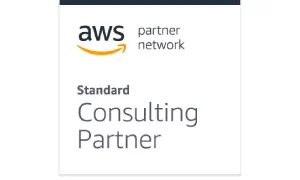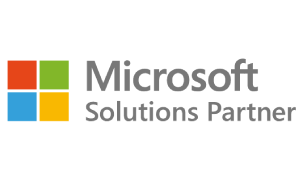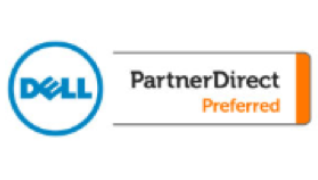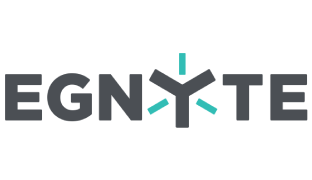
Whether you process, store, or transmit cardholder data, our focus is on reducing risks and simplifying compliance.
Why choose Cantey Tech Consulting to help you follow PCI DSS compliance?
25+ Years
Experience that delivers real IT results
74%
Problems solved on the first call
<1.5 Minutes
Reliable support when you need it
Audit Preparation Without the Guesswork
Uncertainty during audits can slow your compliance efforts. Many organizations struggle to understand what auditors look for, resulting in delays and repeated requests for evidence.
We guide you through each step of the audit process so you know exactly what to expect. We help you collect, organize, and validate the required documents before your QSA review begins.
Avoid last-minute gaps and keep your audit on track. Gain clarity, reduce back-and-forth, and make the audit process less stressful.
Spot Gaps Before They Become Problems
Weak or misaligned controls can leave your cardholder data vulnerable to exposure. Many teams operate without knowing which areas fall short of PCI DSS.
We perform a detailed gap assessment that compares your current controls to PCI DSS requirements. This includes reviewing how data flows through your environment, both technically and procedurally, to uncover blind spots.
Our findings give you clear priorities for remediation. You reduce exposure and build a stronger foundation for passing your next assessment.
Align Your Policies With PCI DSS Standards
Outdated or incomplete documentation can lead to compliance failures, even if your technical controls meet the requirements. Auditors often flag weak policies as a sign of poor oversight.
We create or update policies, workflows, and supporting documents to reflect PCI DSS requirements. This includes access control, incident response, and data retention policies.
You gain audit-ready documentation that matches your actual operations. This improves clarity across teams and helps demonstrate accountability.
Reduce PCI DSS Risks by Following Structured Steps
Knowing your gaps is only the first step. Without a structured plan, teams often stall or apply fixes that fail to meet PCI DSS requirements.
We help you build a detailed remediation plan tied to each control category. This includes technical areas like firewalls, authentication, and secure coding.
Each action item is mapped to a specific goal, so your team can move forward with clarity. You make steady progress and reduce the risk of repeat audit findings.
Security Tools Configured For PCI DSS Compliance
When multiple systems handle cardholder data, audits become more challenging and risks increase. Weak configurations can also leave security gaps that affect compliance.
We configure and manage tools like intrusion detection, secure remote access, and encrypted storage. We also help you isolate cardholder data and harden systems to reduce the amount of your environment that must meet PCI DSS requirements.
This makes compliance more manageable and improves your overall security posture.
Ongoing Support to Help You Stay PCI DSS Compliant
PCI DSS compliance isn’t a one-time task. Without ongoing tracking, minor changes and missed checks can cause you to fall out of alignment between audits.
We provide continuous support to help you stay on track. This includes reviewing logs, coordinating vulnerability scans, and tracking system changes that impact PCI DSS controls.
With consistent oversight in place, you maintain a well-aligned and ready environment for audits at any time.
Secure Cardholder Data With Proven PCI DSS Compliance Guidance
We help businesses meet PCI DSS compliance by combining technical expertise with clear, practical steps.

Uncertainty about which systems fall under PCI DSS can cause confusion, misaligned controls, and missed requirements. Many organizations either overlook in-scope systems or apply PCI controls too broadly, leading to compliance gaps or wasted effort.
We work with you to clearly define which systems store, process, or transmit cardholder data. We also identify ways to reduce scope by utilizing network segmentation and architectural adjustments, thereby requiring fewer systems to comply fully.
This clarity helps you avoid overcomplicating your environment. You gain a streamlined scope, reduce audit complexity, and focus resources where they’re truly needed.

Vendors who store, process, or impact cardholder data can introduce hidden risks. Without proper oversight, you may miss PCI DSS requirements tied to third-party management, which can lead to audit findings or liability gaps.
We assess your service providers to determine how they affect your compliance posture. This includes reviewing their security controls, contract terms, and documented responsibilities as outlined in the PCI DSS.
You gain visibility into external risks and meet vendor oversight requirements with confidence. This helps protect your data and reinforces a defensible compliance program.

Poor system settings leave openings that attackers can exploit, and auditors will flag. Many organizations lack a straightforward process for applying secure configurations across all systems.
We help you set and verify strong configuration standards on servers, workstations, and network devices. This includes turning off unused features, tightening access settings, and making sure each system aligns with PCI DSS requirements.
You reduce security risks and avoid common audit issues. Consistent settings across your environment also make it easier to manage changes over time.
FAQs About PCI DSS Compliance
Any organization that stores, processes, or transmits credit card data must follow PCI DSS compliance regulations.
This includes merchants, service providers, and third parties who handle cardholder data or could affect the security of the payment environment.
Even businesses that outsource payment processing remain responsible for ensuring their vendors comply. Compliance applies regardless of company size or transaction volume.
The major credit card brands enforce PCI DSS compliance through the PCI Security Standards Council (PCI SSC).
While the council creates and maintains the standards, it does not perform enforcement directly. Instead, enforcement is handled by acquiring banks and payment brands such as Visa, Mastercard, American Express, Discover, and JCB.
They may issue penalties or fines to businesses that fail to comply with the regulations.
PCI DSS compliance may still apply even if you do not store credit card data. If your systems process or transmit cardholder data, you must comply with the applicable requirements.
This includes situations where payment information is temporarily passed through your network. The level of compliance depends on how transactions are handled, but using third-party processors does not entirely remove your responsibility under PCI DSS.
The level of PCI compliance you need depends on how many card transactions your business processes annually and how you handle those transactions.
There are four merchant levels.
Your acquiring bank or payment processor will typically confirm which level applies to your organization.
A PCI Self-Assessment Questionnaire (SAQ) is a set of forms used by merchants and service providers to validate PCI DSS compliance without a formal audit.
There are various types, including SAQ A, A-EP, B, C, C-VT, D, and others, which are based on how cardholder data is handled.
The correct SAQ depends on your payment methods, data flow, and technical environment. Your payment processor or Qualified Security Assessor (QSA) can help determine the right one.





